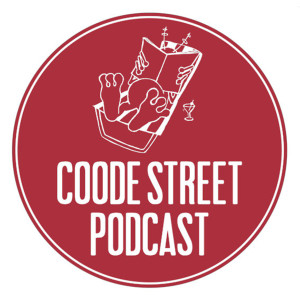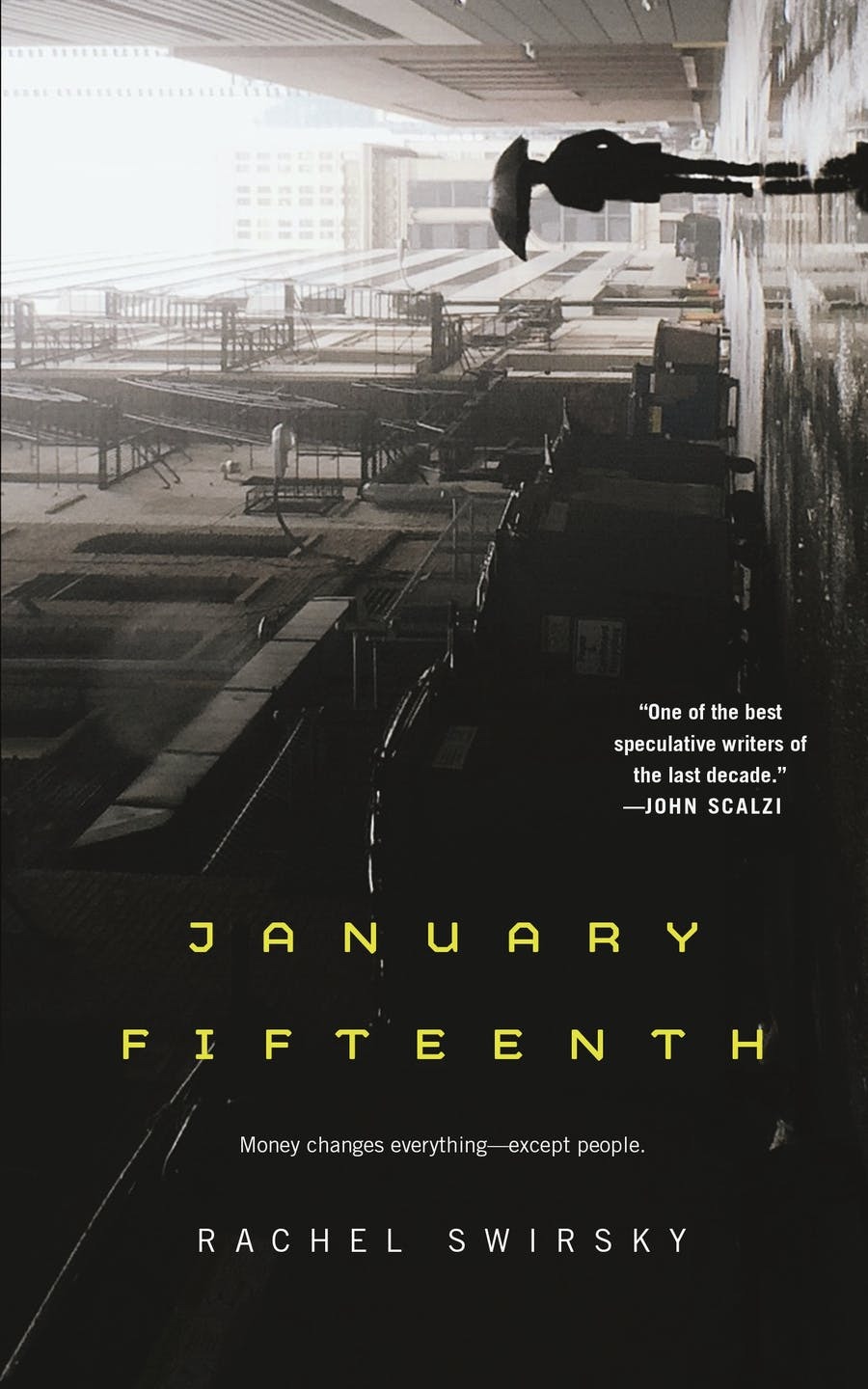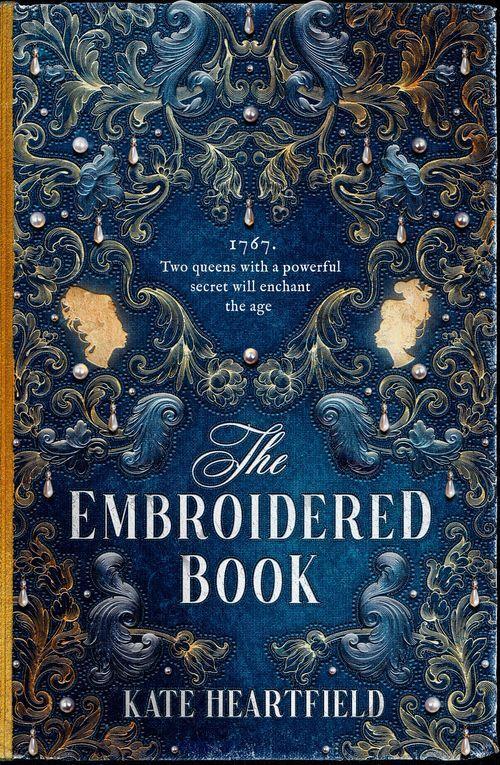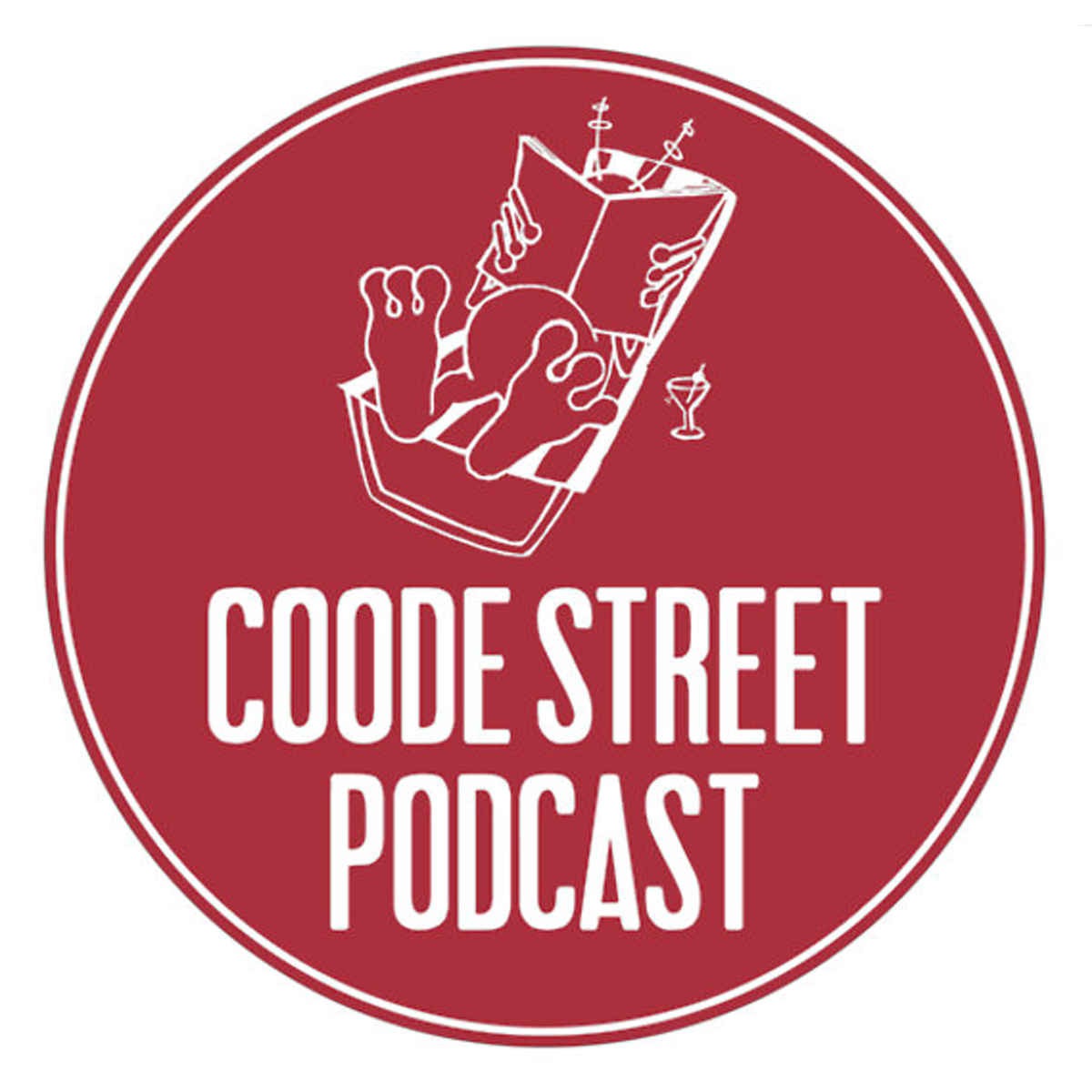Episodes

Monday Jul 04, 2022
Episode 582: Rachel Swirsky and the Universality of Caring
Monday Jul 04, 2022
Monday Jul 04, 2022
 For the first week in July, we’re joined by Nebula Award winner Rachel Swirsky, whose novella January Fifteenth ( just out from Tordotcom) is a provocative exploration of the idea of Universal Basic Income (UBI) as it might play out in the lives of four women in very different circumstances. We touch upon Rachel’s decision to focus on characters rather than systems, to set the tale in a recognizable near future, and to deliberately restrain from many science-fictional bells and whistles.
For the first week in July, we’re joined by Nebula Award winner Rachel Swirsky, whose novella January Fifteenth ( just out from Tordotcom) is a provocative exploration of the idea of Universal Basic Income (UBI) as it might play out in the lives of four women in very different circumstances. We touch upon Rachel’s decision to focus on characters rather than systems, to set the tale in a recognizable near future, and to deliberately restrain from many science-fictional bells and whistles.
This leads to how SF deals, too rarely, with questions of economic policy and the effects on individual lives —in the case of January Fifteenth, a woman escaping from an abusive ex-spouse, a journalist covering the effects of UBI, a well-off college student whose friends deliberately waste their annual checks, and a young member of a repressive religious cult. As usual, we touch upon what’s next for Rachel, including an intriguing collaboration with Ann Leckie.
As always, our thanks to Rachel for making the time to talk to us. We hope you enjoy the episode!

Sunday Jun 19, 2022
Episode 581: Kate Heartfield and The Embroidered Book
Sunday Jun 19, 2022
Sunday Jun 19, 2022
 This week, Jonathan and Gary are delighted to chat with Kate Heartfield, whose thoroughly engrossing historical fantasy The Embroidered Book, already a bestseller in the UK and Canada, has just been published in the United States.
This week, Jonathan and Gary are delighted to chat with Kate Heartfield, whose thoroughly engrossing historical fantasy The Embroidered Book, already a bestseller in the UK and Canada, has just been published in the United States.
We talk about the research that went into her fascinating tale of the sisters Antoine and Charlotte, who grew up to become Marie Antoinette and Queen Charlotte of Naples, and of how magical books of spells secretly helped shape the history of 18th century Europe. We touch upon her earlier Aurora-winning Armed in Her Fashion, the various ways of incorporating fantasy into history, the question of whether historical fiction might be received differently in different cultures and markets, and some hints about her current work in progress.
It’s a pretty lively discussion, and we think a lot of fun. As always, our thanks to Kate for making time to talk to us, and we hope you enjoy the episode!

Sunday May 01, 2022
Episode 578: Kind of dull, but it’s something
Sunday May 01, 2022
Sunday May 01, 2022
This week’s discussion begins with Gary wondering about what he tentatively calls the use of absurdism in some recent novels, mentioning Kelly Barnhill’s When Women Were Dragons and Sunyi Dean's forthcoming The Book Eaters, each of which features a powerful central metaphor that refuses to resolve itself into traditional SF or fantasy systems—somewhat like the old Theatre of the Absurd playwrights like Ionesco. This leads to yet another discussion of what may be happening with the notion of genres, and how an earlier generation of gatekeeping editors has given way to editors more welcoming to a variety of voices and approaches. We more or less conclude that, while this reinvigorates the traditional genres, there are plenty of options for readers who still prefer the familiar formulas and traditions. Finally, we talk a bit about getting together for a possible live podcast at Chicon later this summer.

Sunday Feb 13, 2022
Episode 572: Genre, change, and the passage of time
Sunday Feb 13, 2022
Sunday Feb 13, 2022
This week (episode 3 of season 13) we return to our tradition of almost entirely unstructured rambling. Jonathan and Gary consider such questions as to whether a novel can be good SF, but not much good in literary terms, or a good literary novel not much good as SF.
While we recognize that many popular subgenres, from military SF to heroic fantasy, have plenty of readers loyal to the old traditions, we muse about whether many of today’s writers feel some pressure to meet both traditional literary and SF standards, and Jonathan namechecks R.F. Kuang. Some writers we mention, such as Arkady Martine, seem to effortlessly do both. On the other hand, why were several genre mystery readers of the 1930s and 1940s, like Hammett and Chandler, were later recognized as major literary figures, the same didn’t seem to have to SF writers of the same period.
Toward the end, we touch upon Paul Kincaid's provocative new essay, "A Taxonomy of Reviewing" and his book on Brian W. Aldiss, amongst other things.
As always, we hope you enjoy the episode.

Monday Jan 24, 2022
Episode 571: The New Year and New Books
Monday Jan 24, 2022
Monday Jan 24, 2022
This week Jonathan and Gary are back, a little early, to talk about the annual science fiction calendar, the awards season, how there are so many awards, what books they’re reading, and what books they’ve worked on. Oh, and for a short moment, they touch on movies and TV too.
All in all, episode two of season 13, sounds pretty much like most of the other episodes we've recorded over the past twelve years, so if they were your jam, this might be too.
As always, we hope you enjoy it and are very grateful to everyone for listening in...

Saturday Jan 15, 2022
Episode 570: Coode Street’s Books to Look for in 2022
Saturday Jan 15, 2022
Saturday Jan 15, 2022
Welcome to The Coode Street Podcast. With 2021 barely in the rearview mirror, it's time to kick off season 13 with a brand new episode. A little over a month ago we sat down with James Bradley, Alix E. Harrow, and Ian Mond to discuss 2021: The Year in Review in Episode 568. At the end of that chat, we all said we'd back to discuss the books we're looking forward to in 2022, and here we are!
This week we discuss 25 or so books that we are looking forward to or, maybe, have read already and can recommend that you check out (along with a few strays). Pre-order links are below. We also are clear we've definitely missed books we'll end up loving.
As always, our sincere thanks to James, Alix, and Ian for making time to chat with us. We hope you enjoy the episode and that you'll see us again in a couple weeks.
JAMES
- The Candy House, Jennifer Egan
- To Paradise, Hanya Yanigihara
- Goliath, Tochi Onyebuchi
- Sea of Tranquility, Emily St John Mandel
- A History of Dreams, Jane Rawson
ALIX
- Siren Queen, Nghi Vo
- Saint Death's Daughter, C.S.E. Cooney
- How High We Go in the Dark, Sequoia Nagamatsu
- Nona the Ninth, Tamsyn Muir
- Spear, Nicola Griffith
IAN
- The This, Adam Roberts
- Dark Breakers, C.S.E Cooney
- The Last Blade Priest, Will Wiles
- Booth, Karen Joy Fowler
- Hard Places(1), Kirstyn McDermott
JONATHAN
- The Original Bambi: The Story of a Life in the Forest, Felix Salten (trans. Jack Zipes)
- Babel, or The Necessity of Violence: An Arcane History of the Oxford Translators’ Revolution, R.F. Kuang
- The Landing, Mary Gentle
- All the Seas of the World, Guy Gavriel Kay
- Devil House, John Darnielle
- A Mirror Mended, Alix E. Harrow
- Aspects, John M. Ford
- High Times in the Low Parliament, Kelly Robson
- The Daughter of Dr. Moreau, Silvia Moreno-Garcia
- Boys, Beasts, and Men, Sam J. Miller
(1) Pre-order not yet available.

Monday Nov 08, 2021
Episode 566: On life achievement, awards, and more
Monday Nov 08, 2021
Monday Nov 08, 2021
Welcome to episode 24 of Season 12 of the Coode Street Podcast. As the year draws to a close and winter comes to Chicago and summer to Perth, Gary and Jonathan sit down for an unexpected and unplanned conversation about life achievement awards and their meaningfulness, a brief foreshadowing of a discussion about interrogating the sociopolitical assumptions of a work of fiction, and more.
This time out there were a few technical issues in the final five minutes of the recording, but those have hopefully been addressed by editing. Two episodes remain in the season - a good time to be discussing the year in review and the best fiction of 2021 - before we go on hiatus, but for now we hope you enjoy the episode!

Sunday Aug 22, 2021
Episode 561: Science fiction, influence, and more
Sunday Aug 22, 2021
Sunday Aug 22, 2021
Welcome to episode 19 of Season 12 of The Coode Street Podcast. This time out, Jonathan and Gary return, sans guests or much of a plan. They do manage to touch upon a number of significant issues, such as the work of newly minted World Fantasy Life Achievement winner Howard Waldrop, whether Waldrop could be viewed as a regional author (a Texan in particular), and which other writers might be thought of a representing particular regional voices (R.A. Lafferty, Andy Duncan, Christopher Rowe, Daryl Gregory?), and how regional voice may show up even in the work of hard SF writers like Gregory Benford. This leads into a more general discussion of influences. Are films based on Philip K. Dick now more influential than Dick’s novels themselves? How are innovative writers like Greg Egan (who just turned 60) and Ted Chiang seen as influential?
This leads, somehow, into a discussions of how writers like Dick, Lovecraft, Le Guin, Octavia Butler made it into the Library of America, and finally to the importance of international and regional anthologies such as Oghenchovwe Donald Ekpeki’s new Year’s Best African Speculative Fiction. As always, we also touch upon what we’re reading this week.

